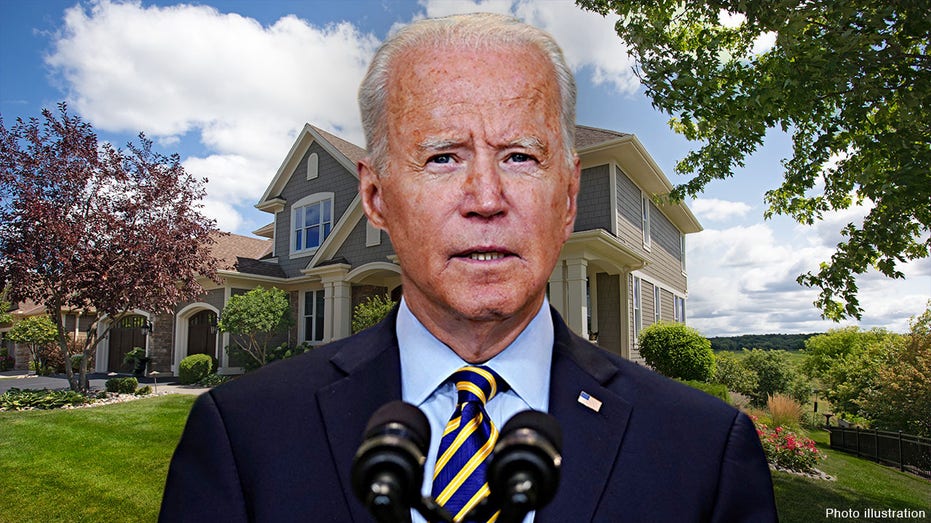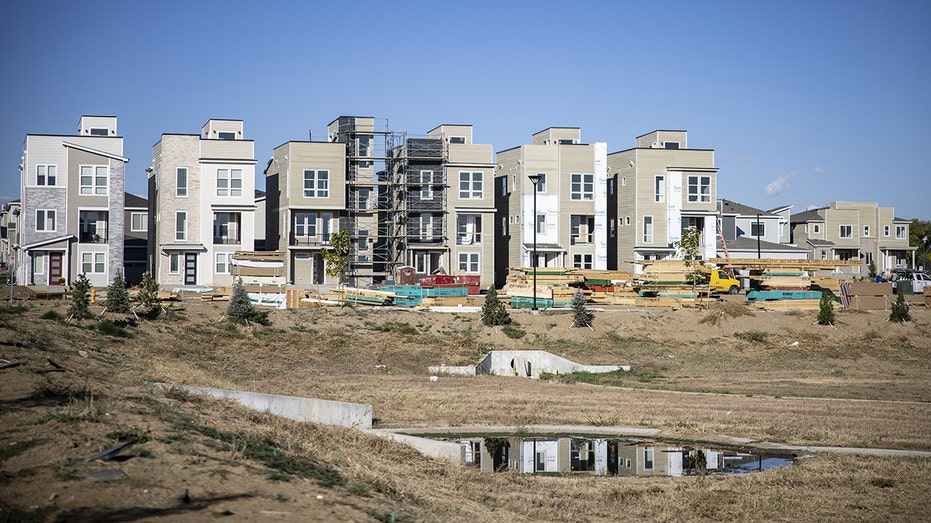Biden admin 'putting Band-Aids on everything' in the housing market as sector faces perfect storm: Expert
Biden White House claims tax credits to weatherize homes will help reduce inflation by next year
Biden admin 'putting Band-Aids on everything' in the housing market: NAHB CEO Jerry Howard
National Association of Home Builders CEO Jerry Howard says the Biden administration needs to address inflation in the housing market.
After a Biden administration economic adviser claimed tax credits to weatherize homes will help Americans reduce inflation and energy costs, one home-building expert is slamming the administration for offering temporary solutions to a top-priority issue.
"Right now, they're just putting Band-Aids on everything, playing a shell game," National Association of Home Builders (NAHB) CEO Jerry Howard told FOX Business’ Stuart Varney on "Varney & Co." Tuesday.
An economic adviser for President Biden claimed Sunday that Americans will notice a decrease in inflation when tax credits kick in that will allow them to weatherize their home. Such improvements include weatherstripping or caulking doors, adding window insulation, adding pipe insulation, and affording HVAC inspections.
"Weatherization can help, but the point is, it costs so much in order to get the ultimate payback. An American would have to stay in their home longer than the average American stays in their home," Howard explained. "That's why they haven't taken advantage of it previously; it's not cost-effective yet."
MORTGAGE RATES RISE TO HIGHEST LEVEL SINCE 2022, DRIVING DOWN HOUSING DEMAND
Home builder confidence for October fell eight points from the previous month, according to the NAHB’s latest index report. Howard predicted those levels aren’t likely to recover anytime soon, primarily due to ongoing supply chain issues and high construction and supply costs.

The Biden White House's suggestion to weatherize homes to lessen the costs of inflation is "not cost effective yet," NAHB CEO Jerry Howard said on "Varney & Co." Tuesday, October 18, 2022. (Fox News)
"This is the tenth month in a row it's gone down. I don't see any reason why it's going to come back up any time soon," Howard said. "We're still having supply chain problems, we're still having problems with increased regulation… right now, the home building sector is facing a perfect storm."
Howard expressed that his organization has met with the Biden administration to discuss housing inflation solutions, but noted that "they’ve done nothing" to reduce regulations and "make financing easier to get at the front end of the pipeline."
"Their answer to stopping inflation in housing is to reduce the value of American baby boomers' largest asset, just when they're getting ready to rely on it for their retirement, and at the same time, make it increasingly difficult, as Dr. [Ben] Carson said, for young people, for first-time homebuyers, for first-generation homebuyers to get into the market," Howard said.
"By collapsing the housing market, that will certainly end inflation," the CEO continued. "But boy, that's a risky way to go."

Collapsing the housing market to end inflation is "a risky way to go," NAHB CEO Jerry Howard said. (Getty Images)
In a previous interview with Varney, Howard stressed that "policymakers need to take action to fix supply chains," noting that "obtaining a new softwood lumber agreement with Canada and reducing tariffs is an excellent place to start."
Howard had also called on policymakers to take action, specifically putting the onus on President Biden to provide access to a steady, affordable supply of lumber and to "fix the overall supply chain."
GET FOX BUSINESS ON THE GO BY CLICKING HERE
The Federal Reserve is tightening policy at the fastest pace in three decades as it tries to crush runaway inflation. Policymakers have voted to approve five consecutive interest rate increases this year, including three consecutive 75-basis-point hikes in June, July and September. At the conclusion of their latest meeting, Chairman Jerome Powell signaled that another 125 basis points of rate increases are on the table this year.
Developer Don Peebles: Housing market 'in for a crash landing'
The Peebles Corporation chairman and CEO assesses the housing market and shares his expectations for the November midterms on 'Maria Bartiromo's Wall Street.'
The rate hikes have driven the average rate for a 30-year fixed mortgage rate above 6%, according to Freddie Mac, the highest since the 2008 recession.
With mortgage rates rising, demand for new homes is rapidly drying up, prompting home prices to fall.
FOX Business’ Megan Henney and Fox News’ Michael Lee contributed to this report.






















